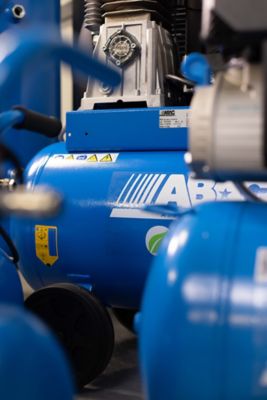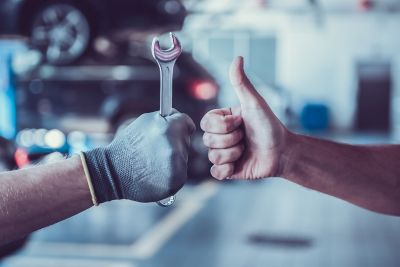That depends on the type. DIY models generally last 5 to 10 years, industrial piston models 8 to 15 years, and rotary screw compressors can run 10 to 20 years or more.
Investing in an air compressor isn’t just about performance—it’s about making sure your equipment stands the test of time. Whether you're a DIY enthusiast, a professional tradesperson, or managing a production site, understanding air compressor life expectancy helps you make better long-term decisions.
In this guide, we’ll explore what determines the air compressor life span of an air compressor, how long different types typically last, and how to get the most out of your ABAC machine.
What Affects the Life Span of an Air Compressor?
The average life of an air compressor can vary widely depending on how it’s used, where it’s installed, and how well it’s looked after. Several factors come into play.
Compressor Type and Usage Level
DIY and Light Professional Use (Reciprocating/Piston Compressors)
These smaller units are designed for tasks like tyre inflation, painting, and powering low-demand tools. With basic maintenance, they generally last 5 to 10 years.
Professional and Industrial-Grade Piston Compressors
Heavy-duty versions are designed for regular use in garages, workshops, and light manufacturing. The typical lifespan of professional compressors ranges from 8 to 10 years, while industrial models generally last between 10 and 15 years.
Rotary Screw Compressors
Built for continuous or near-continuous operation, rotary screw models often last 10 to 20 years or more, especially when properly maintained and used in stable conditions.
Maintenance Practices
A good maintenance routine significantly extends compressor life. Tasks like changing filters, monitoring oil levels, checking for leaks, and replacing worn components help prevent premature wear and tear. ABAC offers tailored service kits to simplify upkeep.
Environment
Ambient conditions have a major impact. Dust, moisture, high temperatures, and poor ventilation can all shorten the life of internal components. By contrast, compressors in clean, dry, well-ventilated environments typically last longer.
Operating Conditions
Pushing a compressor to its limits—whether in terms of pressure, temperature, or usage hours—can shorten its lifespan. Operating within the recommended load, rest cycles, and pressure range helps preserve the machine’s internal parts.
What Is the Average Life of an Air Compressor?
Here’s a general overview of how long different ABAC compressors can be expected to last:
| Compressor Type | Typical Life Expectancy |
|---|---|
| DIY/Light-Duty Piston Compressor | 5–10 years |
| Professional-Grade Piston Compressor | 8-10 years |
| Industrial-Grade Piston Compressor | 10–15 years |
| Rotary Screw Compressor | 10–20 years or more |
⚠️ These are general estimates. The actual lifespan of any air compressor depends heavily on the specific application, the working environment, the number of operating hours, and the level of maintenance it receives.
How to Extend the Life Expectancy of Your Compressor
Looking to get the most from your machine? These best practices will help extend its working life:
Stick to the service schedule
Even if performance seems fine, preventive maintenance keeps internal components from wearing down prematurely.
Keep it clean and cool
Ensure proper airflow around the unit and keep dust or contaminants away from intakes and vents.
Don’t exceed its limits
Avoid running the compressor at maximum pressure or for longer than it’s rated to handle.
Use genuine ABAC parts
Original filters, oil, and spare parts ensure optimal compatibility and help maintain performance and safety.
Upgrade if your needs grow
If your air demand increases and your compressor is constantly running at full capacity, consider stepping up to a more powerful model.
When Is It Time to Replace a Compressor?
Even the most reliable compressor won’t last forever. Here are some signs that it may be nearing the end of its service life:
- More frequent breakdowns and increased servicing needs
- Noticeable drops in airflow or pressure
- Rising energy consumption or operational costs
- Spare parts becoming harder to find
- No longer suitable for your workload or application
If repair costs start to approach half the price of a new model, upgrading is often more cost-effective—particularly as newer ABAC models offer improved energy efficiency and smart features.
FAQs: Answers to Common Lifespan Questions
Life expectancy refers to how long a compressor is expected to last under standard use and care. Life span is how long it actually performs in real-world conditions.
Absolutely. Use it within its recommended limits, keep it clean, and stick to a basic maintenance routine. Many DIY units last well beyond their expected range with good care.
Look out for reduced pressure, frequent failures, rising operating costs, or outdated performance. These are often signs that a newer, more efficient model would be a better fit.















